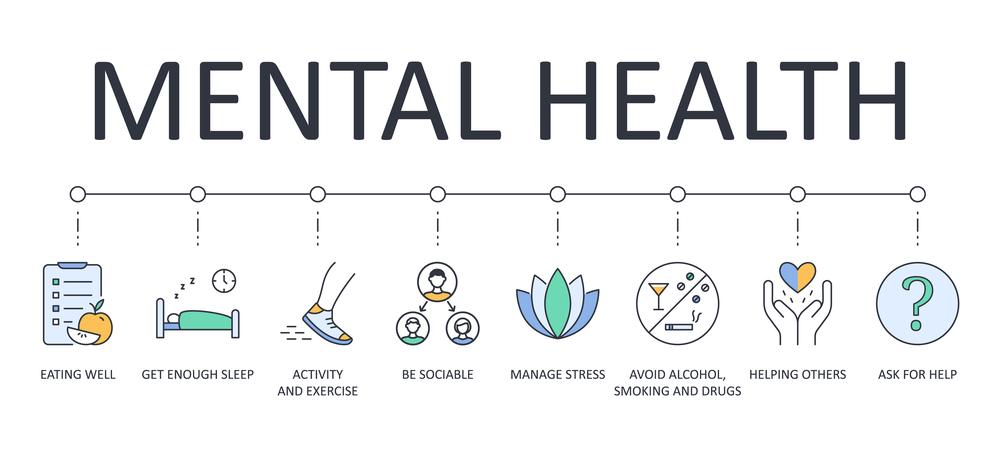As a BetterHelp affiliate, we receive compensation from BetterHelp if you purchase products or services through the links provided
Health screenings are vital for preventive healthcare. They include tests to detect potential health problems early on. By identifying risk factors and signs of disease, screenings help improve overall health and prevent complications. While many are familiar with standard screenings like blood pressure checks, there are other important ones to be aware of. In this blog post, we’ll share valuable information about health screenings.
Understanding the Importance of Early Detection through Health Screenings
By identifying potential health problems in their early stages, individuals have a better chance of preventing them from developing into more severe conditions. This helps improve overall health and well-being and can save lives. For instance, if you need silver health screening, you can click here to learn more about what tests are included and how they can help detect potential health issues. Regular screenings allow individuals to stay on top of their health and address any concerns before they become more challenging to treat.
Types of Health Screenings You Should Consider
There are various types of health screenings that individuals should consider depending on their age, gender, and medical history. Some standard screenings include blood pressure checks, cholesterol tests, mammograms for breast cancer, Pap smears for cervical cancer, and colonoscopies for colorectal cancer. For older adults, bone density scans to check for osteoporosis and eye exams for vision problems are also essential. Genetic testing may be recommended for individuals with a family history of certain medical conditions to identify potential risk factors. Consult with your healthcare provider to determine which health screenings are necessary based on your health profile.
An equally crucial aspect of health that often doesn’t get as much attention in standard health screenings is mental health and sleep issues. These areas are vital to our well-being and can significantly impact our physical health.
The Significance of Mental Health Screenings
Mental health is integral to our lives, influencing how we think, feel, and behave daily. It also affects our ability to cope with stress, overcome challenges, build relationships, and recover from life’s setbacks and hardships. Regular mental health screenings can help detect conditions like depression, anxiety, bipolar disorder, or PTSD early on, offering a pathway to treatment and support sooner rather than later.
- Early Detection: Identifying mental health issues early can lead to interventions that prevent the development of more severe conditions.
- Understanding Risk Factors: Screenings can help individuals understand their risk factors, such as family history or environmental stresses, and take proactive steps toward mental wellness.
Addressing Sleep Issues
Sleep plays a critical role in good health and well-being throughout your life. Getting enough quality sleep can help protect your mental health, physical health, quality of life, and safety. Screenings for sleep disorders like insomnia, sleep apnea, or restless leg syndrome can be life-changing, as these conditions can significantly affect your daily energy, productivity, emotional balance, and even your weight.
- Better Sleep, Better Health: Addressing sleep issues can improve your health, mood, and well-being.
- Personalized Recommendations: Based on sleep screening results, healthcare providers can offer tailored advice on sleep hygiene and, if necessary, treatments or interventions to improve sleep quality.
Integrating Mental Health and Sleep into Regular Screenings
Incorporating mental health and sleep evaluations into regular health screenings is essential in holistic healthcare. It acknowledges the profound impact of mental and emotional well-being and sleep quality on physical health. By doing so, we can:
- Create a Complete Health Picture: Including these screenings provides a more comprehensive view of an individual’s health, leading to better-informed healthcare decisions.
- Promote Early Intervention: Early detection of mental health and sleep issues can facilitate timely intervention, improving outcomes.
Taking Action for Mental and Sleep Health
 Just as with physical health screenings, taking action after identifying potential mental health or sleep issues is crucial. This could mean seeking the support of mental health professionals, considering therapy or counseling, and exploring treatment options for sleep disorders. Lifestyle changes, such as improving diet, increasing physical activity, and practicing stress-reduction techniques, can also positively impact.
Just as with physical health screenings, taking action after identifying potential mental health or sleep issues is crucial. This could mean seeking the support of mental health professionals, considering therapy or counseling, and exploring treatment options for sleep disorders. Lifestyle changes, such as improving diet, increasing physical activity, and practicing stress-reduction techniques, can also positively impact.
Remember, mental health and sleep are not luxuries but essential components of your overall health. Prioritizing these aspects through regular screenings and follow-up actions can lead to a happier, healthier, and more fulfilling life.
The Role of Family History in Determining Necessary Health Screenings
Family history plays a significant role in determining which health screenings an individual may need. If a family member has a specific medical condition, there is a higher likelihood that other family members may also be at risk for developing the same condition. This is why gathering and sharing information about your family’s health history with your healthcare provider is vital. By identifying potential genetic risk factors, your healthcare provider can recommend specific screenings and preventive measures to help you stay healthy. Family history regarding health screenings should not be ignored, as it can provide valuable insights into potential health risks.
How Often Should You Get Screened?
How often an individual should get screened depends on various factors, including age, gender, and medical history. Generally, adults over 18 should have a general health screening every three years. However, individuals with certain risk factors or pre-existing conditions may need more frequent screenings. For example, women aged 40 and above are advised to have a mammogram every one to two years, while individuals with a family history of colorectal cancer may need a colonoscopy every five years. It is essential to follow the guidelines and recommendations provided by your healthcare provider for frequency and age-appropriate screenings.
Preparing for a Health Screening
Before your scheduled screening, follow any instructions provided by your healthcare provider, such as fasting before a blood test or avoiding certain medications. It is also helpful to gather information about your family’s medical history and write down any questions you may have for your healthcare provider. Being proactive and informed can help you make the most out of your health screening and ensure that all necessary tests are conducted. You may be asked about your lifestyle, diet, and medical history during the screening. This is to gather a complete picture of your health and identify potential risk factors. After the screening, your healthcare provider will discuss the results with you and provide recommendations for any necessary follow-up tests or lifestyle changes.
Taking Action
After receiving your screening results, it is crucial to take action. If no concerning health issues are detected, prioritize preventive measures such as maintaining a healthy diet and exercise routine. However, if any potential health problems are identified, following through with any recommended follow-up tests or lifestyle changes is crucial. Ignoring the results can lead to more severe health complications in the future. Your healthcare provider can also guide you in addressing any health concerns and work with you to create a plan for improving your overall health. Remember, early detection through health screenings is vital to maintaining good health, so be proactive and take action after receiving your results.
Health screenings are an essential part of preventive healthcare. By detecting potential health problems early on, individuals have a better chance of preventing them from developing into more severe conditions. A proactive approach to health screenings can help individuals stay on top of their health and address any concerns before they become more challenging to treat. Take action after receiving your screening results to maintain good health and well-being. So, prioritize your health by scheduling regular health screenings today!
- Stress Management: What is the Relationship Between Stress and Addiction? - June 28, 2024
- Exploring Techniques to Maintain a Healthy Lifestyle without Drugs - May 28, 2024
- How Acupuncture Helps Treat Chronic Fatigue Syndrome - May 28, 2024
This site contains affiliate links to products. We will receive a commission for purchases made through these links.




